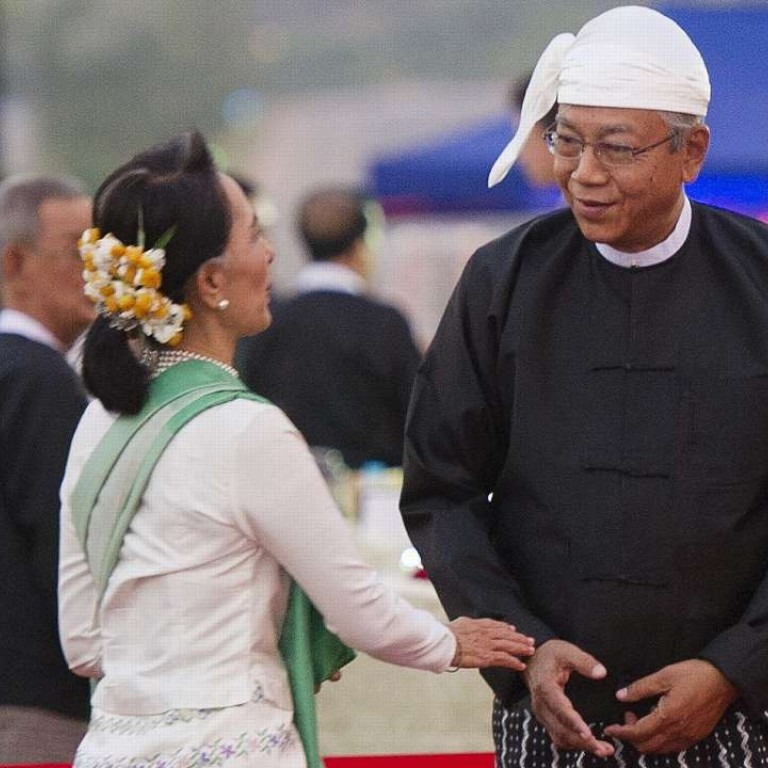
Myanmar has a new government, but the army still looms large
Changes that have been transforming the country for the past five years may be jeopardised if self-interest is put ahead of the country’s 53 million people
No tried-and-tested formula exists to ensure a country’s smooth transition from a military dictatorship to a civilian democracy. Myanmar has reached the most crucial stage of that process with Aung San Suu Kyi and her National League for Democracy taking power. Half a century of army misrule has left the new leadership with many challenges, from ethnic insurgencies to basic social well-being deficits to a yawning economic gap with other Asian nations. They are pressing matters that deserve prompt attention, but effectively dealing with them will require civilians and soldiers setting aside differences and working together.
President Htin Kyaw laid out his government’s agenda in his inaugural address at the opening of parliament last week. Its policies will centre on “national reconciliation, internal peace, pursuing a constitution towards a federal union and improving the living standards of the majority of people”. Directing the process are 20 ministers heading 21 ministries, with Suu Kyi holding two of the posts: foreign affairs and the president’s office, and the specially created role of state counsellor, a job that would seem to overlap with the duties of the president in coordinating the activities of parliament and the executive branch. The new government has promised administrative efficiency and cost-cutting and it would seem to be on track to meet its aims, having downsized the previous structure from 36 ministries.
There is already criticism from army generals who are members of parliament that Suu Kyi has too many powers. Although she has to be mindful of the democratic principles under which Myanmar is now governed, it is the military-drafted constitution that is her biggest problem. It bars her from the presidency due to her having children with foreign citizenship, but more troubling for democratic governance are guarantees that the generals have a quarter of the seats in parliament and the key cabinet portfolios of defence, border security and home affairs.
Besides keeping vast business interests, that gives the army wide-ranging influence over local government, the police and border areas. No changes can be made to the constitution without the military’s consent. But the NLD has made one of its missions to alter the document to complete the transition to democracy. Attaining that goal is unlikely to come without a political tussle. The changes that have been transforming Myanmar since former general and president Thein Sein began implementing political reforms five years ago could be jeopardised should self-interest be put ahead of the country’s 53 million people.

